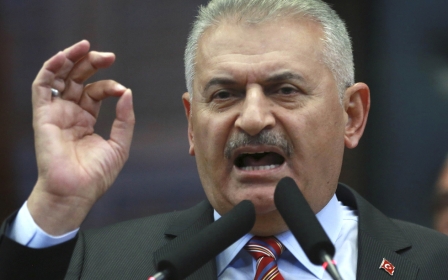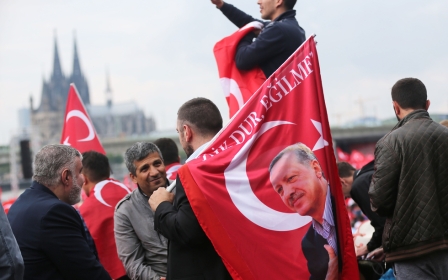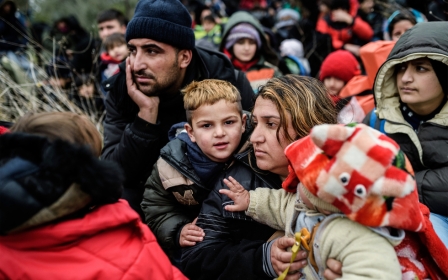Turkey calls Germany 'twisted' over claims it supports militants
Germany’s Interior Ministry has accused Turkey of supporting proscribed militant organisations in a leaked report that threatens to further sour relations between the erstwhile allies.
The leak of the report marks the first time that Berlin has officially claimed that Ankara – and President Recep Tayyip Erdogan personally - is financing groups such as Hamas and the Muslim Brotherhood, as well as “armed Islamist opposition groups” in Syria.
Hitting back at the report, Turkey’s foreign ministry on Wednesday said the allegations reflected a “twisted mentality” and an attempt to “wear down our country”.
The internal report, prepared as a confidential answer to a question asked in parliament and leaked to the German press on Wednesday, also notes concerns over what it calls the “step-by-step Islamisation” of Turkish foreign policy since 2011.
“The numerous affirmations of solidarity with and support for the Muslim Brotherhood in Egypt, for Hamas and for armed Islamist opposition groups in Syria by the ruling AK party and President Erdogan underscore their ideological affinity to their Muslim brothers,” the document was quoted as saying by public broadcaster ARD.
Turkey is now "the central hub for Islamist groups in the Middle East,” the ministry report said.
Hamas is considered a “terrorist organisation” by the EU, which kept the Palestinian group on its blacklist earlier this year despite a controversial court decision ordering Brussels to remove the designation.
The Muslim Brotherhood, which ruled Egypt following the 2011 revolution until a popular-backed military coup in 2013, is not officially considered a terrorist organisation by the union.
Turkey backs armed groups in Syria that are fighting Bashar al-Assad and his allies, but has frequently denied giving material support to proscribed groups like al-Nusra Front and Islamic State.
Responding to the allegations, the Turkish foreign ministry said in a statement that Germany’s allegations were “a new manifestation of a twisted mentality, which for some time has been trying to wear down our country, by targeting our president and our government”.
Germany and Turkey have strong historic links, with the largest Turkish diaspora in the world following decades of “guest worker” schemes aimed at reviving the German economy following the end of the Second World War.
However, relations between the two soured in June after Germany’s parliament approved a resolution to classify the 1915 massacres of Armenians in the Ottoman Empire a “genocide”.
Turkey is currently attempting to join the EU, of which Germany is the biggest member, but has faced significant opposition, including from Berlin.
Ankara is also hoping to win visa-free travel to Europe for its citizens in exchange for a controversial deal that has seen it accept asylum seekers forcibly returned to Turkey from Greece.
However, the visa-free travel deal hinges on Turkey completing 72 criteria, with Germany’s EU foreign affairs minister said this week that the prospects “don’t look good”.
Middle East Eye propose une couverture et une analyse indépendantes et incomparables du Moyen-Orient, de l’Afrique du Nord et d’autres régions du monde. Pour en savoir plus sur la reprise de ce contenu et les frais qui s’appliquent, veuillez remplir ce formulaire [en anglais]. Pour en savoir plus sur MEE, cliquez ici [en anglais].




